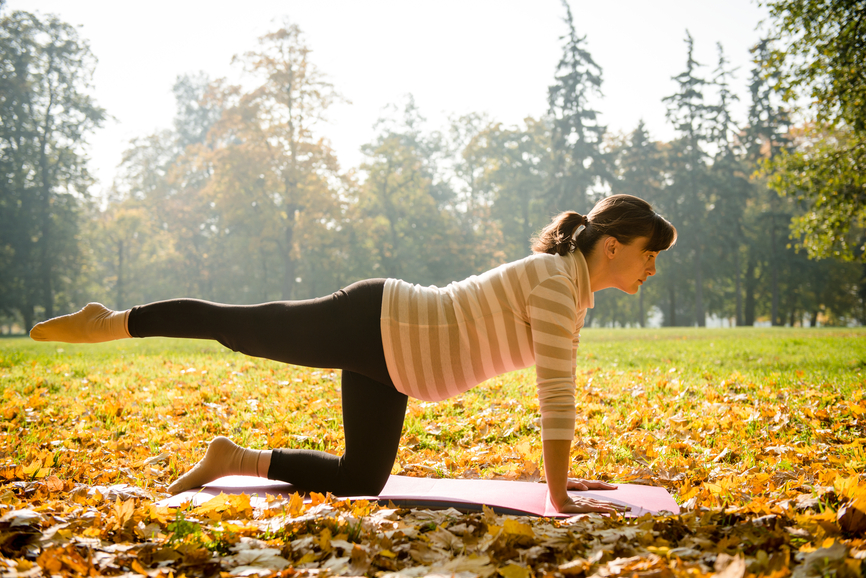
We’re told all the time about the benefits of being active. Working out makes you fit, builds muscle and helps you maintain a healthy lifestyle. There have been countless studies on the advantages of exercise and what it can do for your body. In fact, many clinical psychologists use exercise as a key part of their treatment for depression, general anxiety and the more specific social anxiety disorder.
This is because research has proven that exercising on a regular basis may boost a depressed person’s outlook and thought processes by helping them adopt a meaningful activity that provides a sense of accomplishment. It can provide you with something worthwhile in your life and help raise your self worth as well as improve your self confidence. Better yet, it gives you a new perspective on how to approach your problems in a goal driven manner.
If you’re not already convinced of the benefits of exercise for overcoming social anxiety disorder, here are 8 reasons why exercise can make you feel better and reduce your social phobia as a result:
1. Reduce Stress
Perhaps the most common mental benefit of exercise is stress relief. If you are having a rough day, at home or in your office, then taking time out to exercise can work wonders. Whether you’re up to working out at the gym or would prefer to stroll through a quiet park, taking a break to exercise can help free your mind from the daily chaos of busy life. It’s believed that exercise increases norepinephrine, which is a chemical that can help the brain deal with stress more efficiently and focus better.
2. Boost Happy Chemicals
In severe cases, social anxiety disorder may be treated with antidepressant medication. However, some cases studies have shown that working out may be just as effective as antidepressant medication. A certain chemical called “dopamine” plays a huge role as a neurotransmitter in the brain that is required for feelings of pleasure and happiness, and the best way to increase dopamine production is to exercise.
3. Improve Self-Confidence
Having low self esteem will have a negative effect on all areas of our life. Your relationships are at risk as well as your career and your life aspirations. Working out helps you to feel better physically and mentally, and to develop the positive attitude and emotional stamina needed to take on personal goals and overcome the negative thoughts that drive social anxiety disorder.
4. Enjoy the Great Outdoors
If you don’t fancy going to a gym, then you can exercise in the great outdoors. Instead of running on your treadmill, why not run a few laps around your neighborhood or go to the nearest park where you get to enjoy the scenery, get fresh air, notice the changing seasons, weather and enjoy nature. Getting much exposure outside under the sun has lots of benefits like Vitamin D that can lighten your mood and reduce social anxiety disorder symptoms. Aside from that, studies suggest that you can burn more calories when you exercise outdoors.
5. Prevent Cognitive Decline
Age is one of the factors why we go through a cognitive decline. Our brains will gradually become less precise and cloudy over time. Diseases like Alzheimer’s are becoming worryingly more common in old age, where you lose primary brain functions like memory. Exercise can help avoid cognitive decline out might help in preventing to prevent the risk of developing Alzheimer’s as we aged. Exercise paired with a balance diet helps improve memory and keeps your thinking, reasoning and learning skills sharp.
6. Alleviate Feelings of Social Anxiety
When you work out or jog for just a few minutes, warm and fuzzy chemicals called endorphine are released during and after your workout which can help you to think in a calmer, more positive manner that naturally helps to reduce the uncomfortable thoughts and feelings of social anxiety disorder.
7. Get More Done
According to some research, people who manage to include workout as their daily habit are more productive and enthusiastic than their inactive peers. No matter how busy your schedule gets, always take time to exercise whether it’s first thing in the morning, in your lunch break or after work to stay more focused on a daily basis.
8. Form New Friendships
Finding a workout buddy is a good way to push yourself when training and to form a new friendship. As well as helping to motivate you when you feel too lazy to exercise, having a workout buddy gives you an opportunity to socialize without being under pressure to be entertaining, to have something interesting to say or any of the other false pressures you might put on yourself if you suffer from social anxiety disorder.
From my own personal experience, I can tell you that regular exercise was one of the key components of my strategy for overcoming social anxiety. The combination of setting yourself new goals, the sense of satisfaction from seeing the improvements in my health and the regular boost of endorphines was crucial in boosting my self esteem and reducing my anxiety of social situations.
So I highly recommend that you dig out some trainers or look up some fitness routines on YouTube and improving your health while reducing your social anxiety at the same time.